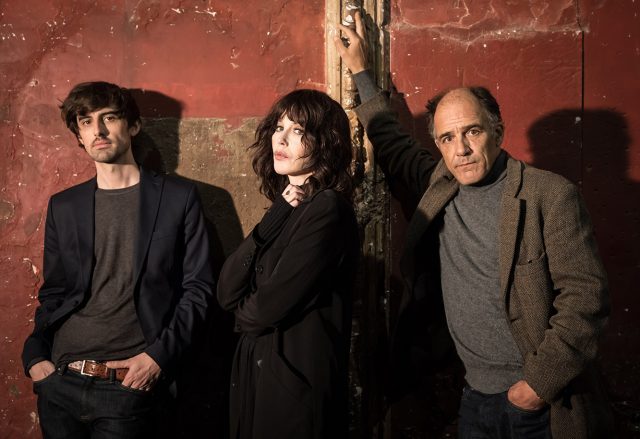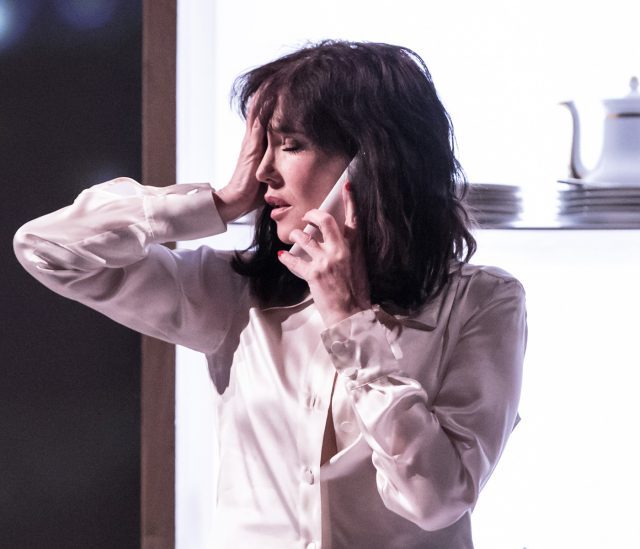
Crossing the Line Festival opens with Isabelle Adjani in Opening Night (photo © Simon Gosselin)
Crossing the Line Festival
French Institute Alliance Française and other venues
September 12 – October 12
212-355-6160
crossingthelinefestival.org
FIAF’s thirteenth annual Crossing the Line Festival, one of the city’s best multidisciplinary events, opens appropriately enough with the US premiere of French director Cyril Teste’s Opening Night, a multimedia adaptation of John Cassavetes’s 1977 film. The seventy-five-minute presentation, running September 12-14, stars the legendary Isabelle Adjani, along with Morgan Lloyd Sicard and Frédéric Pierrot; the actors will receive new stage directions at each performance, so anything can happen. (In conjunction with Opening Night, FIAF will be hosting the CinéSalon series “Magnetic Gaze: Isabelle Adjani on Screen,” consisting of ten films starring Adjani, including The Story of Adele H, Queen Margot, and Possession, on Tuesdays through October 29.) Also on September 12, Paris-born, New York–based visual artist Pierre Huyghe will unveil his free video installation The Host and the Cloud, a two-hour film exploring the nature of human ritual, set in a former ethnographic museum; the 2009-10 film will be shown on a loop in the FIAF Gallery Monday to Saturday through the end of the festival, October 12. Another major highlight of CTL 2019 is the US premiere of Peter Brook and Marie-Hélène Estienne’s Why? Running September 21 through October 6 at Theatre for a New Audience’s Polonsky Shakespeare Center in Brooklyn, the seventy-five-minute show delves into the very existence of theater itself. The festival also features dance, music, and other live performances by an impressive range of creators; below is the full schedule. Numerous shows will be followed by Q&As with the writers, directors, and/or performers.
Thursday, September 12
through
Saturday, September 14
Opening Night, directed by Cyril Teste, starring Isabelle Adjani, Morgan Lloyd Sicard, and Frédéric Pierrot, FIAF Florence Gould Hall, $45-$55, 7:30
Thursday, September 12
through
Saturday, October 12
The Host and the Cloud, directed by Pierre Huyghe, FIAF Gallery, free
Friday, September 13
through
Sunday, September 15
Manmade Earth, by 600 HIGHWAYMEN, the Invisible Dog Art Center, $15 suggested donation
Tuesday, September 17
and
Wednesday, September 18
The Disorder of Discourse, Fanny de Chaillé’s restaging of a lecture by Michel Foucault, with Guillaume Bailliart, the Cooper Union for the Advancement of Science and Art, free with RSVP, 8:00
Saturday, September 21
through
Sunday, October 6
Why?, by Peter Brook and Marie-Hélène Estienne, Polonsky Shakespeare Center, Theatre for a New Audience, $90-$115
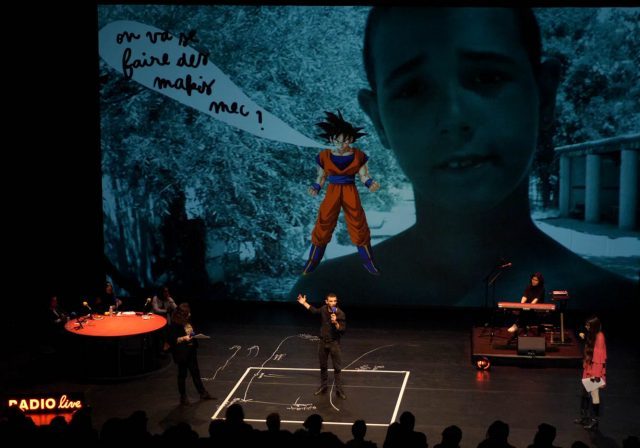
Radio Live makes its New York premiere at Crossing the Line Festival (photo © Louise Quignon)
Wednesday, September 25
Isadora Duncan, by Jérôme Bel, CTL commission, with Catherine Gallant, FIAF Florence Gould Hall, $35, 7:30
Thursday, September 26
through
Saturday, September 28
Somewhere at the Beginning, created and performed by Mikaël Serre, choreographed by Germaine Acogny, set to music by Fabrice Bouillon, La MaMa, $25, 7:00
Wednesday, October 2
Radio Live, with Aurélie Charon, Caroline Gillet, and Amélie Bonnin, based on narratives by young change makers from around the world, FIAF Florence Gould Hall, $15-$35
Thursday, October 3
through
Sunday, October 6
Look Who’s Coming to Dinner, world premiere choreographed by Stefanie Batten Bland, with music by Paul Damien Hogan, inspired by 1967 Stanley Kramer film, La MaMa, $21-$26
Friday, October 4
and
Saturday, October 5
The Sun Too Close to the Earth, world premiere by Rhys Chatham for nine-piece ensemble, inspired by climate change, along with Le Possédé bass flute solo and On, Suzanne featuring harpist Zeena Parkins and drummer Jonathan Kane, ISSUE Project Room, $25, 8:00
Thursday, October 10
When Birds Refused to Fly, conceived, directed, and choreographed by Olivier Tarpaga, featuring Salamata Kobré, Jean Robert Kiki Koudogbo, Stéphane Michael Nana, and Abdoul Aziz Zoundi, with music by Super Volta and others, FIAF Florence Gould Hall, $15-$35, 7:30
Friday, October 11
and
Saturday, October 12
Дyми Moï — Dumy Moyi, solo performance by François Chaignaud, the Invisible Dog Art Center, free with RSVP
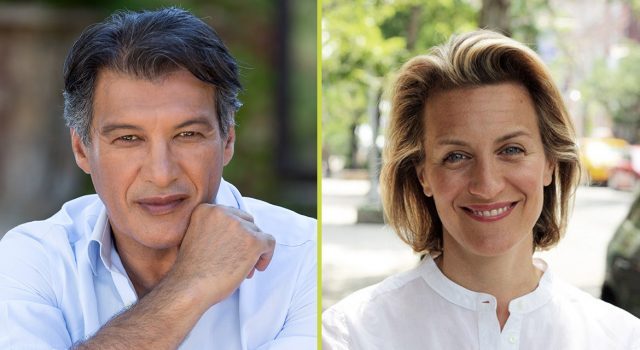

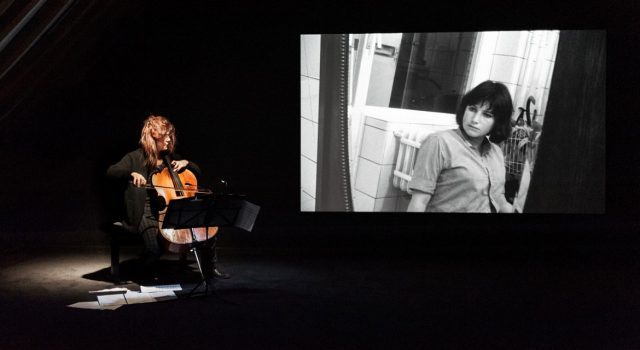

 Danish writer-director Lars von Trier has nothing less than the end of the world on his mind in his controversial 2011 drama, Melancholia, which is screening December 3 at 7:30 in the FIAF CinéSalon series “Charlotte Forever: Gainsbourg on Film.” Yet another of Von Trier’s love-it-or-hate-it cinematic forays opens with epic Kubrickian grandeur, introducing characters in marvelously composed slow-motion and still shots (courtesy of cinematographer Manuel Alberto Claro) as an apocalyptic collision threatens the earth and a Wagner overture dominates the soundtrack. Kirsten Dunst won the Best Actress award at Cannes for her portrayal of Justine, a seemingly carefree young woman celebrating her wedding day who soon turns out to be battling a debilitating mental illness. Her husband, Michael (Alexander Skarsgård), is madly in love with her and does not know quite what he has gotten himself into, especially as the partying continues and Justine’s motley crew of family and friends get caught up in various forms of intrigue, including Gaby, her marriage-hating mother (Charlotte Rampling), Dexter, her never serious father (John Hurt), Jack, her pompous boss (Stellan Skarsgård), Claire, her married sister (Charlotte Gainsbourg), and Claire’s filthy rich husband, John (Kiefer Sutherland), who is hosting the event at his massive waterfront estate.
Danish writer-director Lars von Trier has nothing less than the end of the world on his mind in his controversial 2011 drama, Melancholia, which is screening December 3 at 7:30 in the FIAF CinéSalon series “Charlotte Forever: Gainsbourg on Film.” Yet another of Von Trier’s love-it-or-hate-it cinematic forays opens with epic Kubrickian grandeur, introducing characters in marvelously composed slow-motion and still shots (courtesy of cinematographer Manuel Alberto Claro) as an apocalyptic collision threatens the earth and a Wagner overture dominates the soundtrack. Kirsten Dunst won the Best Actress award at Cannes for her portrayal of Justine, a seemingly carefree young woman celebrating her wedding day who soon turns out to be battling a debilitating mental illness. Her husband, Michael (Alexander Skarsgård), is madly in love with her and does not know quite what he has gotten himself into, especially as the partying continues and Justine’s motley crew of family and friends get caught up in various forms of intrigue, including Gaby, her marriage-hating mother (Charlotte Rampling), Dexter, her never serious father (John Hurt), Jack, her pompous boss (Stellan Skarsgård), Claire, her married sister (Charlotte Gainsbourg), and Claire’s filthy rich husband, John (Kiefer Sutherland), who is hosting the event at his massive waterfront estate.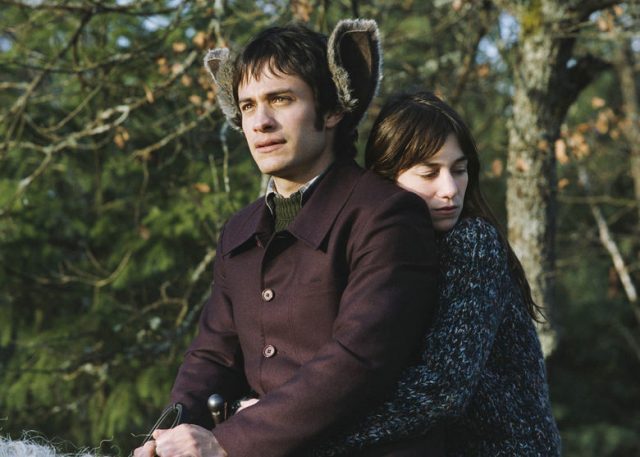
 The FIAF CinéSalon series “Charlotte Forever: Gainsbourg on Film,” an eight-movie tribute to the ever-charming and captivating Charlotte Gainsbourg, continues November 19 with eclectic auteur Michel Gondry’s feature-length debut as both writer and director. The Science of Sleep is a complex, confusing, kaleidoscopic stew that is as charming as it is frustrating. Gael García Bernal (The Motorcycle Diaries, Mozart in the Jungle) stars as the juvenile but endearing Stéphane, a young man in a silly hat who has trouble differentiating dreams from reality. The childlike Stéphane becomes friends with his new neighbor, Stephanie (Gainsbourg), who still has plenty of the child left inside her as well. Stéphane has a job his mother (Miou-Miou) got him, toiling for a small company that makes calendars, alongside the hysterical Guy (Alain Chabat), who can’t help constantly poking fun at coworkers Serge (Sacha Bourdo) and Martine (Aurélia Petit).
The FIAF CinéSalon series “Charlotte Forever: Gainsbourg on Film,” an eight-movie tribute to the ever-charming and captivating Charlotte Gainsbourg, continues November 19 with eclectic auteur Michel Gondry’s feature-length debut as both writer and director. The Science of Sleep is a complex, confusing, kaleidoscopic stew that is as charming as it is frustrating. Gael García Bernal (The Motorcycle Diaries, Mozart in the Jungle) stars as the juvenile but endearing Stéphane, a young man in a silly hat who has trouble differentiating dreams from reality. The childlike Stéphane becomes friends with his new neighbor, Stephanie (Gainsbourg), who still has plenty of the child left inside her as well. Stéphane has a job his mother (Miou-Miou) got him, toiling for a small company that makes calendars, alongside the hysterical Guy (Alain Chabat), who can’t help constantly poking fun at coworkers Serge (Sacha Bourdo) and Martine (Aurélia Petit).
